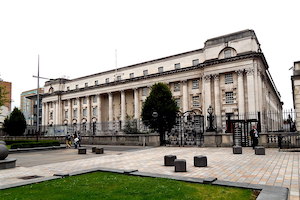Is a lost First worth £5m?
 After Andrew Croskery comes Tony Chinedu Wogu. According to the Daily Telegraph and The Register, Tony Chinedu Wogu has failed in his bid to sue the University of Bradford for £5m compensation, alleging that a 2:2 and not a First in Computing Science was the result of discrimination and breach of contract. Judge Andrew Collender QC struck out his case, saying academics had a much better understanding of the quality of a student’s work than lawyers did. As Treacy J had done in Croskery, Collender QC pointed out that Mr Wogu could seek judicial review of the university’s decision to award him a 2:2, but only after he had exhausted his internal appeals. Moreover, he reasserted the principle of judicial deference to matters of purely academic judgment (as opposed to breaches of procedure):
After Andrew Croskery comes Tony Chinedu Wogu. According to the Daily Telegraph and The Register, Tony Chinedu Wogu has failed in his bid to sue the University of Bradford for £5m compensation, alleging that a 2:2 and not a First in Computing Science was the result of discrimination and breach of contract. Judge Andrew Collender QC struck out his case, saying academics had a much better understanding of the quality of a student’s work than lawyers did. As Treacy J had done in Croskery, Collender QC pointed out that Mr Wogu could seek judicial review of the university’s decision to award him a 2:2, but only after he had exhausted his internal appeals. Moreover, he reasserted the principle of judicial deference to matters of purely academic judgment (as opposed to breaches of procedure):
…This court has the most limited of powers to interfere in such a decision. This court has not the power or expertise to simply examine or to determine the proper degree grade to which the claimant would have been entitled from the University of Bradford. That is a decision particularly within the scope of an academic institution. It would not be for this court to apply its judgment as to the degree level reached and substitute that for the university’s … and the defendants’ application to strike out is successful.





